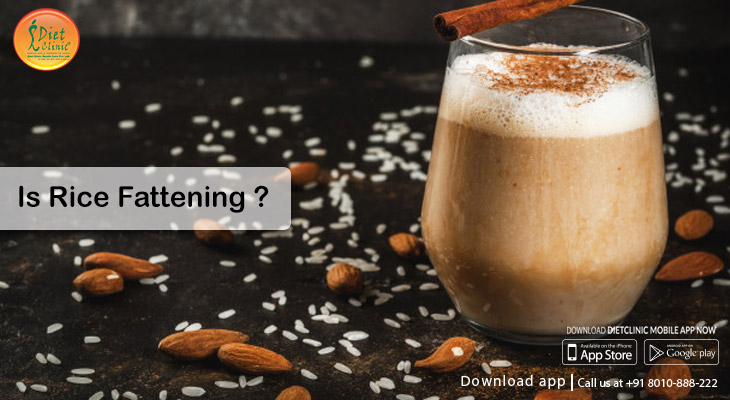
Dietician Sheela Seharawat
There are two school of thoughts: one believes that rice is full of starch and has very less nutrients. Hence it’s fattening and should be avoided. Whereas, the other believes that rice is rich in carbohydrates, one of the important sources of energy for our body and it should not be avoided.
Now, if you ask me whether rice is fattening or not, my take on this is “moderation is the key to a healthy life”. Any food, including rice when taken in excess can be fattening or bad for the health. If we can keep control on the portion size and keep track of our calorie intake then we won’t get fat. However, white rice is a refined/ processed grain and it gets digested easily and since its rich in starch and poor in dietary fiber it may cause weight gain. Apart from being a good source of carbohydrate, rice also contains some amount of protein. Rice can be categorized into two types: whole-grain — foods that contain the entire grain kernel, such as brown rice and refined grain like white rice.
White rice, unlike brown rice goes through a milling process that devoid it of its fiber, iron and vitamins. However, food manufacturers enrich white rice and other processed grains with vitamins and minerals, but, dietary fiber cannot be added back into the food. So, people who are looking for weight loss should choose brown rice over white rice.
Nutritional benefits of brown rice and white rice (Per 100 gms)
Brown rice
Carbohydrates – 77 grams
Fiber – 3.5 grams
Fat – 3 grams
Protein – 8 grams
Thiamin (Vitamin B1) – 0.4 milligram
Niacin – 5 milligram
Iron – 1.5 milligram
Magnesium – 143 milligram
Potassium – 223 milligram
Calories – 111
White Rice
Carbohydrates – 80 grams
Fiber – 1 gram
Fat – 0.6 gram
Protein – 7 grams
Thiamin – 0.07 milligram
Niacin – 1.6 grams
Iron – 0.8 milligram
Magnesium – 25 milligram
Calories – 130
So, what I want to say is that rice can be fattening when we don’t consume the right type and right proportion. If we choose brown rice over white rice and that too in controlled portion then it won’t add to your weight.
Following are some benefits of brown rice including weight loss:
High in Fiber
Brown rice is rich in fiber and because of this quality it comes in the list of foods that can help prevent colon cancer. The fibers present in brown rice attach to substances and toxins that can cause cancer in the thus eliminating them and preventing them to attach to the colon wall.
High in Manganese
Manganese helps the body to synthesize fats and also benefits the nervous system and the reproductive system. A cup of brown rice provides about 80% of our recommended daily manganese requirement.
Rich in Selenium
Brown rice is rich in selenium which reduces the risk of cancer, heart problems and arthritis.
Rich in Naturally-Occurring Oils
Brown rice contains naturally occurring oils which help in maintaining the cholesterol levels in the body.
Helps in Weight Loss
The high fiber content of brown rice keeps bowel function normal and makes digestion easier. Hence, its very good for people who have regular constipation problem. Due to the high fiber content it also makes us feel full and we tend to eat less resulting in weight loss.
Whole Grain
Brown rice is considered a whole grain as it doesn’t undergo the refinement process like white rice. Studies have shown that whole grains reduce the formation of arterial plaque and also reduce high cholesterol thus minimizing the risk of heart disease.
Rich in Anti-Oxidants
Mostly people know that strawberries, green tea, blue berries etc. are rich in anti-oxidants but what people don’t know is that brown rice also contains high amounts of anti oxidants.
Excellent food choice for diabetics’
Brown rice helps stabilize blood sugar levels. So, diabetes patients who crave for rice can benefit by including brown rice in their diet, Studies show that consuming half cup of brown rice daily reduces the risk of developing diabetes by 60%. Whereas, eating white rice daily increases the chances of developing diabetes 100 folds.

.png)
.png)






